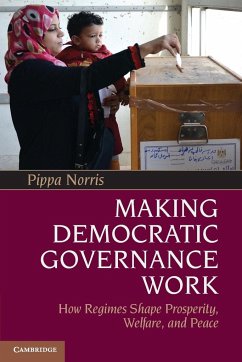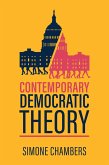Is democratic governance good for economic prosperity? Does it accelerate progress towards achieving the Millennium Development Goals, social welfare and human development? Does it generate a peace-dividend and reduce conflict at home? This book argues that both liberal democracy and state capacity need to be strengthened to deliver effective development. Is democratic governance good for economic prosperity? Does it accelerate progress towards social welfare and human development? Does it generate a peace-dividend and reduce conflict at home? Within the international community, democracy and governance are widely advocated as intrinsically desirable goals. Nevertheless, alternative schools of thought dispute their consequences and the most effective strategy for achieving critical developmental objectives. This book argues that both liberal democracy and state capacity need to be strengthened to ensure effective development, within the constraints posed by structural conditions.Liberal democracy allows citizens to express their demands, hold public officials to account and rid themselves of ineffective leaders. Yet rising public demands that cannot be met by the state generate disillusionment with incumbent officeholders, the regime, or ultimately the promise of liberal democracy ideals. Thus governance capacity also plays a vital role in advancing human security, enabling states to respond effectively to citizen's demands.
Hinweis: Dieser Artikel kann nur an eine deutsche Lieferadresse ausgeliefert werden.
Hinweis: Dieser Artikel kann nur an eine deutsche Lieferadresse ausgeliefert werden.
"Political science has focused heavily on democratic institutions in recent years but far less on the understanding of basic state capacity, whose absence often undermines democracy. Making Democratic Governance Work is an important book that helps enormously to fill this critical gap in our understanding." - Francis Fukuyama, Olivier Nomellini Senior Fellow, Freeman Spogli Institute, Stanford University








